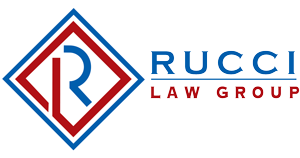Like most homeowners, you are probably aware that your property and your neighbors’ properties are subject to zoning regulations that are imposed by the local municipality. You understand that before undertaking a construction project, you must research those laws and make sure your plans for the property will be allowed. However, confirming that your proposed addition, subdivision or other change complies with your lot’s applicable zoning regulations must not be the end of your investigation. It is also essential that you review your title to confirm that there are no private restrictions on your property that would allow a neighbor to block your proposal.
Private restrictions (sometimes referred to as covenants or agreements) can include specific items that would impact construction, such as setbacks that are greater than the setbacks imposed by town zoning laws, restrictions on the size of buildings on the property, limits on the number of buildings on the lot, and parameters or prohibitions on fences. Some private restrictions even grant a neighbor or group of neighbors the right to review and approve the design of your home. Private restrictions can also constrain how your property is used by imposing prohibitions on certain commercial activities and forbidding the presence of certain animals on the site. Finally, private restrictions can block the subdivision of a lot or bar construction of more than one single family home on that lot (which effectively prohibits subdivision).
Generally, private restrictions will be recited in your deed; however, sometimes the face of a deed only references restrictions and the language of the restriction can only be found in another deed or on a map. For these reasons, it is very important to have a full title search run before you purchase your property and to hold onto the search (or have a new search run) before you begin planning a new project.
Private restrictions must be listed on the land records in the town where your property is located. It is therefore very important to review those records before starting any work. You can search the land records yourself at your local town clerk’s office, but it is often advisable to hire a professional title searcher and an attorney to help with document interpretation and to ensure that nothing is missed. For example, on occasion, a restriction that may appear on its face to be problematic may have expired or otherwise be unenforceable for other reasons, including violations of fair housing regulations.
Remember that if you violate a private restriction, knowingly or unknowingly, the individual with the power to enforce the restriction can file a lawsuit to stop construction and, in some circumstances, successfully litigate the case such that a court requires you to demolish a structure that violates the restriction. With that outcome in mind, it is most often worth the time and effort to review a property’s private restrictions before construction begins. It is also important to understand your rights before your neighbor begins construction or makes significant changes to his or her lot since you may have the right to enforce a private restriction to prevent that neighbor from engaging in activity that might be harmful to your property.
